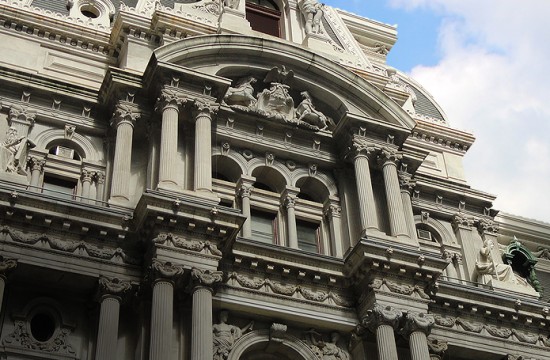The end of the most recent City Council session saw a flurry of activity—most notably the passage of the City’s FY17 Capital and Operating budget that included the sweetened beverage tax. But there were also a number of sustainability-related bills that passed with the support of the Kenney Administration and the Office of Sustainability.
Two pieces of legislation introduced by Councilwoman Maria Quiñones-Sanchez aim to make Philadelphia a more attractive venue for sustainable businesses and certified B Corps.
Increasingly over the past decade, businesses have taken steps to incorporate sustainable practices into their operations. In 2009, Philadelphia was the first city in the nation to adopt financial incentives for sustainable businesses, and these bills build on that momentum and acknowledge the value of sustainable and socially responsible business practices.
The first piece of legislation, an extension of the Sustainable Business Tax Credit originally set to expire in 2017, expands the number of businesses eligible for the credit, and extends the credit’s applicability to include the net income portion of the Business Income and Receipts Tax (BIRT). (While this may sound like accountant-speak, extending the credit to both the gross receipts and net income portion of the BIRT will ultimately allow more businesses to participate in the program and produce significant tax savings to many small businesses whose gross receipts are not high enough to benefit from the current tax credit formula.)
The original Sustainable Business Tax Credit, introduced in 2009 by then-Councilman Kenney, provides a tax credit of up to $4,000 for up to 25 businesses each year against only the gross receipts portion of the BIRT. Starting next year, up to 50 businesses can qualify for the tax credit and in 2019 up to 75 business will be eligible. Businesses can qualify for the tax credit by becoming B Corp certified or meeting a list of criteria outlined by the Office of Sustainability, and submitting an application.
The second bill introduced by Councilwoman Quiñones-Sanchez builds on the City of Philadelphia’s existing Jump Start BIRT abatement program by offering qualifying sustainable businesses a three-year exemption from BIRT liabilities. (The current program limits the exemption to two years.) To remain eligible for a third year, businesses will need to be certified B Corps or sustainable businesses as determined by the Office of Sustainability. Businesses will also have to meet specific employment requirements set forth in the legislation.
A third bill, introduced by Councilwoman Blondell Reynolds-Brown and passed in early June, requires the installation of LED lighting in new construction and major renovations of City facilities. In many cases, new construction or large renovations of City buildings are already incorporating energy efficient LED lighting into the scope of the projects. This legislation ensures that energy efficient LED lighting is budgeted for and evaluated for inclusion in every City project. LEDs can last 25 times longer and use 75% less energy—saving money, reducing maintenance costs, and improving building performance.
All three pieces of legislation were the result of the collaboration and input of Council, city agencies, community members, and partners in the business community. We are eager to continue our efforts to grow a vibrant network of businesses that advances our city’s sustainability and economic development goals.

